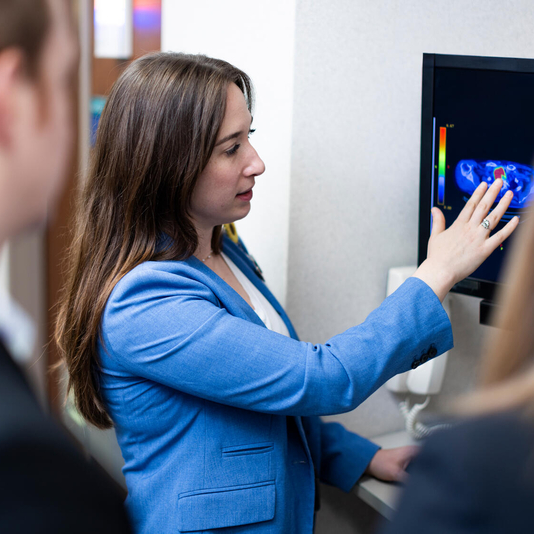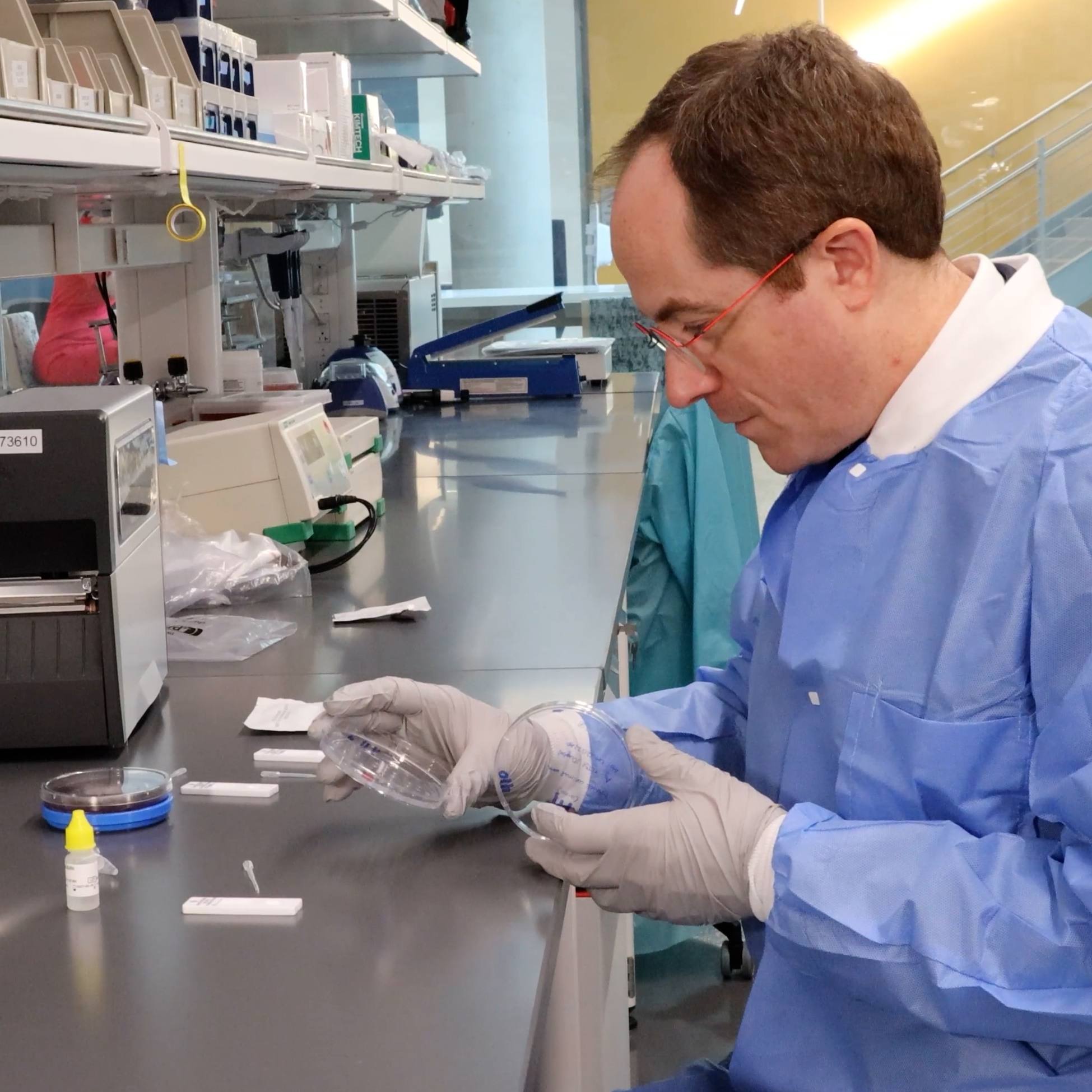-
A step toward a cell-free solution for stress urinary incontinence
Skeletal muscle regenerated and symptoms of stress urinary incontinence improved in preclinical models after use of a cell-free product discovered at Mayo Clinic. In one of the first studies of its kind, Mayo Clinic researchers learned this noncellular approach can restore muscle function and bladder control in preclinical models. The teams of Atta Behfar, M.D., Ph.D. and Emanuel Trabuco, M.D., led this research in a collaboration between Mayo Clinic Departments of Cardiovascular Medicine and Obstetrics and Gynecology. The paper is published in NPJ Regenerative Medicine.
"Surgical treatment for stress urinary incontinence, a condition afflicting 25 million women, has significantly declined over concerns about negative side effects," says Dr. Trabuco. “This has led many women to delay therapy and suffer needlessly. We hope to develop a minimally invasive, noncellular, exosome-based approach to muscle regeneration for urinary incontinence that not only targets the underlying cause of the condition but also avoids the problem with the invasive surgical options that are presently available."
Mayo Clinic's Center for Regenerative Biotherapeutics supports this research as part of its objective of delivering new cures to the practice, particularly for rare and complex conditions.
The research team used a regenerative purified exosome product derived from platelets, known as PEP, to deliver healing messages into the cells of preclinical models. Exosomes are extracellular vesicles that are like a delivery service moving cargo from one cell to another, with instructions for targeting exact tissues that need repair.
In contrast to cellular medicines that must be preserved in special deep freezers, a noncellular approach enables the product to be stored at room temperature in an off-the-shelf product that is readily available when needed in the operating room. This clinical grade product was discovered in the Van Cleve Cardiac Regenerative Medicine Program and is biomanufactured under Current Good Manufacturing Practices set by the Food and Drug Administration to ensure product purity, potency and sterility.

Purified exosome product derived from platelets delivers healing messages into cells.
This study demonstrated that the use of purified exosome product alleviates stress urinary incontinence from musculoskeletal breakdown in animals. The team did not detect any infection or off-target toxicity with application of exosomes.
"Skeletal muscle degeneration is a major cause of morbidity. Our research seeks to advance development of off-the-shelf technologies to regenerate skeletal muscle. Our hope is to deliver a product that will provide new therapeutic options for human health and could have implications on orthopedics and reconstructive surgery, in tandem with a significant impact on women’s health as evaluated in this publication," says Dr. Behfar.
Dr. Behfar is director of the Mayo Clinic Van Cleve Cardiac Regenerative Medicine Program and co-director for Innovation in Biologics for the Department of Cardiovascular Medicine.
Additional clinical trials will be needed to verify safety and effectiveness of using exosomal products for stress urinary continence in humans. Clinical trial testing of exosome-based therapies is an essential part of the process, as determined by the Food and Drug Administration, to prove the safety and benefit of technologies before they are available use in daily clinical care.
Dr. Behfar is the co-founder of Rion LLC, which Mayo Clinic has licensed to manufacture the purified exosomal product technology. Mayo Clinic and Dr. Behfar have a financial interest in the technology referenced in this article.
###









